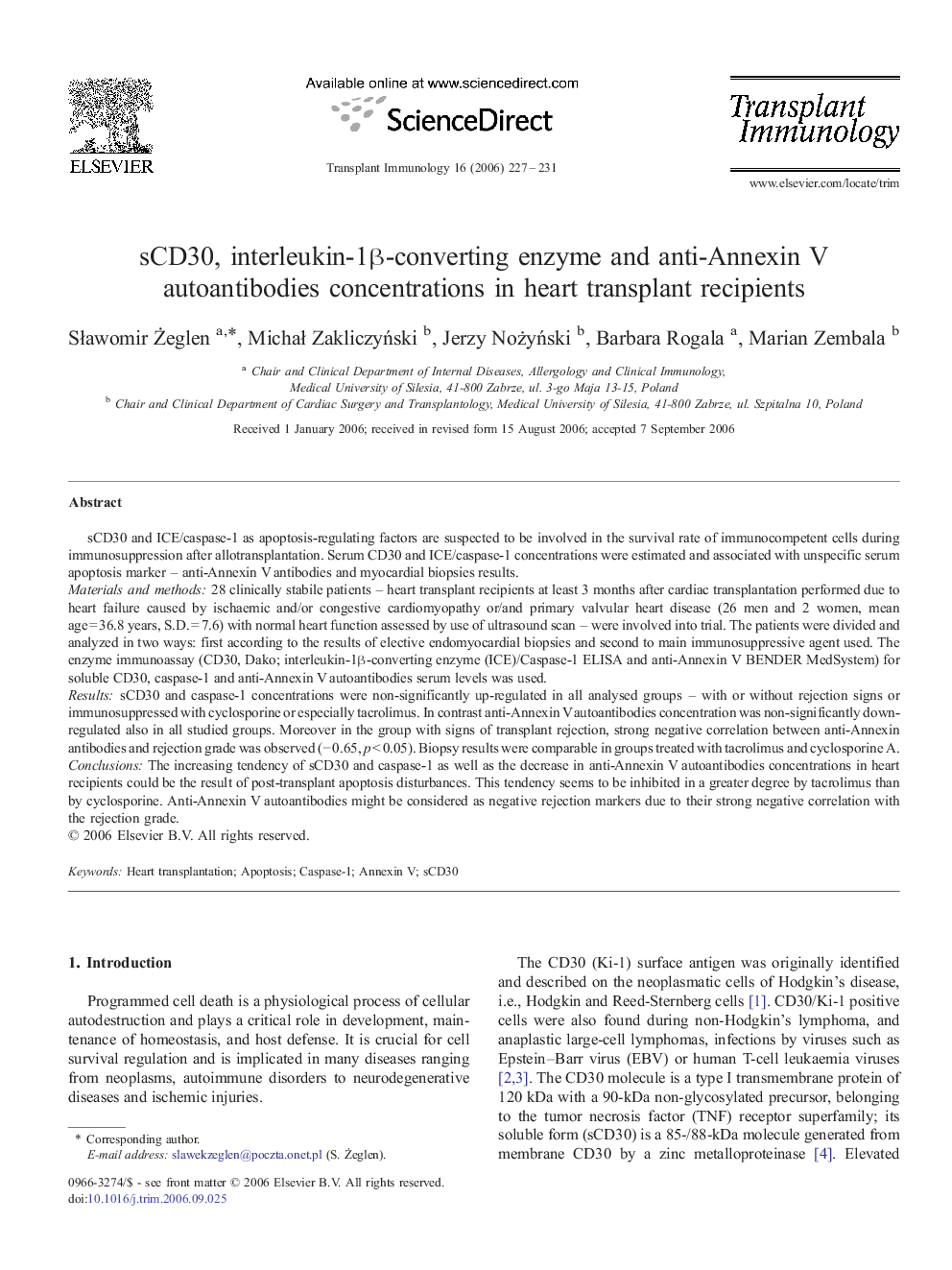| Article ID | Journal | Published Year | Pages | File Type |
|---|---|---|---|---|
| 3392600 | Transplant Immunology | 2006 | 5 Pages |
sCD30 and ICE/caspase-1 as apoptosis-regulating factors are suspected to be involved in the survival rate of immunocompetent cells during immunosuppression after allotransplantation. Serum CD30 and ICE/caspase-1 concentrations were estimated and associated with unspecific serum apoptosis marker – anti-Annexin V antibodies and myocardial biopsies results.Materials and methods28 clinically stabile patients – heart transplant recipients at least 3 months after cardiac transplantation performed due to heart failure caused by ischaemic and/or congestive cardiomyopathy or/and primary valvular heart disease (26 men and 2 women, mean age = 36.8 years, S.D. = 7.6) with normal heart function assessed by use of ultrasound scan – were involved into trial. The patients were divided and analyzed in two ways: first according to the results of elective endomyocardial biopsies and second to main immunosuppressive agent used. The enzyme immunoassay (CD30, Dako; interleukin-1β-converting enzyme (ICE)/Caspase-1 ELISA and anti-Annexin V BENDER MedSystem) for soluble CD30, caspase-1 and anti-Annexin V autoantibodies serum levels was used.ResultssCD30 and caspase-1 concentrations were non-significantly up-regulated in all analysed groups – with or without rejection signs or immunosuppressed with cyclosporine or especially tacrolimus. In contrast anti-Annexin V autoantibodies concentration was non-significantly down-regulated also in all studied groups. Moreover in the group with signs of transplant rejection, strong negative correlation between anti-Annexin antibodies and rejection grade was observed (− 0.65, p < 0.05). Biopsy results were comparable in groups treated with tacrolimus and cyclosporine A.ConclusionsThe increasing tendency of sCD30 and caspase-1 as well as the decrease in anti-Annexin V autoantibodies concentrations in heart recipients could be the result of post-transplant apoptosis disturbances. This tendency seems to be inhibited in a greater degree by tacrolimus than by cyclosporine. Anti-Annexin V autoantibodies might be considered as negative rejection markers due to their strong negative correlation with the rejection grade.
